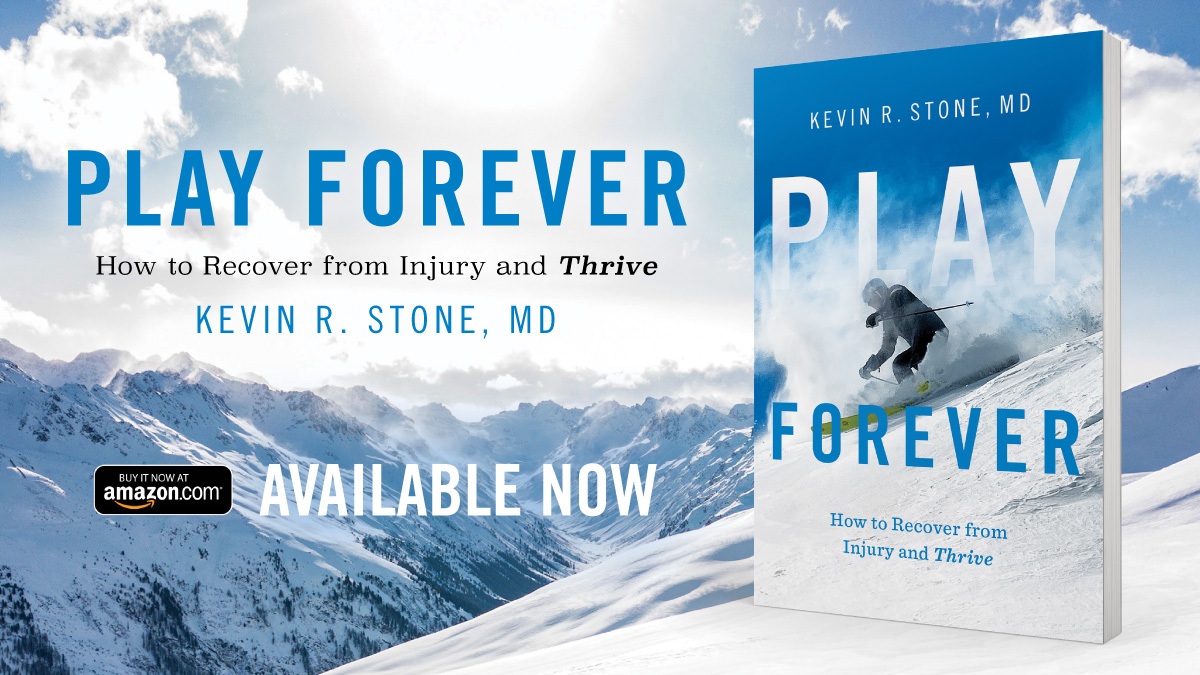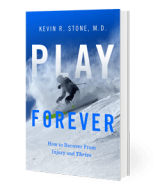Healing Diet (excerpt from Play Forever book)
Low carb, low fat, low calories—“low” is the common denominator of nearly every diet fad.

The harm is done when it is low protein. While there are varying statements on how much protein a person needs each day, my observation is that those levels are far too low when you are injured or sick. (And they are probably too low to keep you from getting injured and sick.)
People are influenced by sensational online and print media. The touting of new diets by movie stars and supplement manufacturers masquerades as science. On top of that, scientists at our government institutions use poor-quality studies to create nutritional pyramids that guide American food choices and diets. The combination of marketing and low reliability, when mixed with the opportunity for profit, has led to harmful diet recommendations. Vegetarians and vegans may adopt meatless diets for other reasons, of course—as a lifestyle choice due to moral convictions, for example. But the meat they forego must be replaced with significant amounts of other proteins in order to avoid illness and injury.
For healthy individuals, the margin for error when following diets that eliminate certain food groups is reasonably large so people do not become too sick too fast. Yet I see many injured athletes, weekend warriors, and people with arthritis who wonder why they don’t heal as fast as they used to. One reason for this is their low protein intake.
An even more dramatic correlation exists between low blood albumin (a marker for protein load) and infection. Put simply, if your dietary intake of protein is low, your blood albumin level is low, and your risk of infection after a surgical procedure or with an open wound is high. Anyone who tells you that a low-protein diet is a good idea simply does not see what I see.
When a bone is fractured or a limb is immobilized, muscle atrophy can be measured after as little as eight hours and continues until motion and weight-bearing are restarted. The loss of muscle exposes the limb to further damage. Regaining that muscle requires training. The benefits of training depend on protein availability more than any other factor.
Here is what you need to know. Complete or quality protein is protein that has all the essential amino acids required for health. Lean protein sources, such as skinless chicken or turkey, 90 percent or leaner ground beef, low-fat or nonfat dairy, seafood, soy products, pork loin, and eggs are ideal. Incomplete proteins, such as beans, oatmeal, barley, corn, nuts, and seeds are missing some of the essential amino acids and must be combined with other foods.
For good health maintenance, the range of recommendations for protein intake is as follows: 0.8 to 1.5 gm/kg of body weight (17–21 percent) of total calories. (To convert to metric, first divide your weight in pounds by 2.2. Then multiply by the protein recommendation.) For example, a 220-pound person weighs 100 kg, and therefore should consume 80 to 150 grams of protein a day for health maintenance alone. For sick or injured people trying to build muscle, the recommendation increases to 2gm/kg a day. (Note: other health issues must be taken into account before introducing dramatic increases in protein intake. Always consult your physician before making these changes.)
Look at yourself. If you are injured and want to repair your tissues, what do you want to repair and rebuild them with? Do you want to be mostly fat? Mostly carbohydrates? Or protein? Eat mostly what you want to be, and feed the systems you need to restore health.
To learn more about how to optimize your diet for long-term joint health, check out Dr. Stone’s new book Play Forever: How to Recover from Injury and Thrive, on Amazon now.

